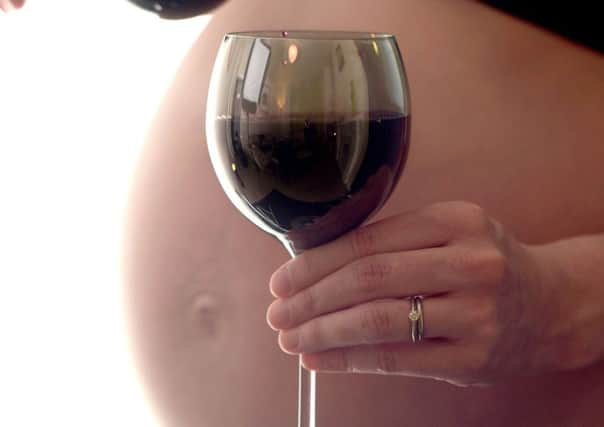Mothers-to-be warned by doctors to not drink at all


Mary Mather, a retired paediatrician, and Kate Wiles, a doctoral research fellow in obstetric medicine at Guy’s and St Thomas’ NHS Trust, said the “only ethical advice that can be given is complete abstinence from alcohol in pregnancy”.
They said women were faced with “confusing” and “contradictory” messages about drinking while pregnant.
Advertisement
Hide AdAdvertisement
Hide AdCurrent guidance “flies in the face of evidence”, while other countries, including the US, Canada, Denmark, France, Norway, Israel, Mexico, Australia, Ireland, New Zealand and Spain, recommend no alcohol in pregnancy, they said.
In the UK, the Department of Health recommends women should avoid alcohol altogether. But, it says, if they do opt to drink, they should have no more than one or two units (equivalent to one or two small glasses of wine) once or twice a week.
The National Institute for Health and Care Excellence (Nice) advises women to avoid alcohol in the first three months in particular, because of the increased risk of miscarriage.
Meanwhile, the Royal College of Obstetricians and Gynaecologists (RCOG) says drinking too much can harm an unborn baby and women should not drink in the first three months. But its leaflet adds: “The safest approach is to not to drink at all during pregnancy, although drinking small amounts of alcohol after three months of pregnancy (not more than one or two units, not more than once or twice a week) does not appear to be harmful.”
Writing in the British Medical Journal (BMJ), the two women said alcohol is not essential to the health or wellbeing of a pregnant woman, and is known to be harmful to her baby.
They said infants can suffer from foetal alcohol syndrome - which is linked to heavy drinking - as well as development and behavioural abnormalities.
Guidelines therefore need to be clear and acknowledge there is no evidence which shows that alcohol consumption below a certain level is safe, they said.
In an opposing view, Dr Patrick O’Brien, a consultant and RCOG spokesman, said women were intelligent and could be told that inconsistencies exist.
Advertisement
Hide AdAdvertisement
Hide Ad“We have produced a raft of conflicting guidance for women on this subject,” he said.
“This is our failing, not theirs. The solution is not to abrogate our responsibility by advising, ‘We’ve confused you, so just abstain: it’s safer’. We need to resolve these inconsistencies then present the evidence in a clear and unambiguous way.
“This is not to imply we should conceal the fact that in some areas the evidence cannot provide a clear, unambiguous answer.
“If they perceive that we have been making value judgments on their behalf, or professing certainty where none exists, we are certain to lose their trust.”